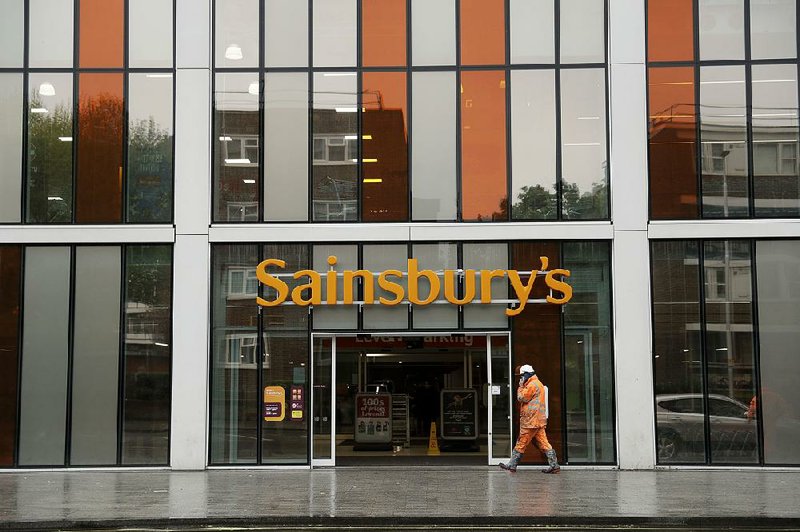A proposed merger between Walmart Inc.'s U.K. unit, Asda, and British supermarket chain Sainsbury's would raise prices and reduce quality and choices for shoppers, a regulatory agency said Wednesday, throwing yet another wrench into Walmart's overseas realignment efforts.
The deal would create the U.K.'s largest grocery chain, surpassing current supermarket giant Tesco, and Britain's Competition and Markets Authority is concerned that less competition will lead to a "poor overall shopping experience" for U.K. consumers.
In a preliminary report Wednesday, the agency identified 629 areas throughout the U.K. where the merger would create competition concerns. The report stated that the companies would likely have to sell a "significant" number of stores to get the deal approved.
Asda and Sainsbury's said in a joint statement Wednesday that the agency's provisional findings "fundamentally misunderstand how people shop in the U.K. today and the intensity of competition in the grocery market. The CMA has moved the goalposts and its analysis is inconsistent with comparable cases."
Merging the two grocery chains would cut costs and result in lower prices for consumers, the companies said. "We will be working to understand the rationale behind these findings and will continue to press our case in the coming weeks," they said in the statement.
A Walmart spokesman said in an email Wednesday that the company had nothing to add to the joint statement.
The Bentonville retailer reached an agreement in late April to sell Asda to rival Sainsbury's in a deal valued at $10.1 billion. Sainsbury's chief executive officer was caught on camera singing "We're in the Money" shortly after the deal was announced, for which he later apologized.
Walmart acquired Asda in 1999 for $10.8 billion in what was its largest transaction until it purchased a majority stake in the Indian e-commerce firm Flipkart Group in May for $16 billion. That deal, finalized in August, also has run into regulatory issues.
A new mandate to enforce India's protectionist regulations took effect Feb. 1. The rules prohibit foreign retailers from selling products via companies in which they have an equity interest, as Walmart does with Flipkart, or require merchants to sell exclusively on their platform.
Walmart's purchase of the 77 percent stake in Flipkart was intended to allow Walmart to sell online directly to India's burgeoning middle class.
The expanded online presence of Walmart and other foreign companies such as Amazon.com has not been welcomed in India, particularly by the tech and retail industries. Business groups claim that the retail giants create unfair competition that could put locally-owned stores out of business and stymie the growth of tech startups.
Walmart's other international moves in the past year include the sale in June of its majority stake in Walmart Brazil. Private equity investment firm Advent International acquired 80 percent of the Brazilian unit, with Walmart holding the remaining 20 percent. The terms of the deal were not released.
Walmart operates under 58 banners in 27 countries, and has e-commerce websites in 10 countries. Its international division reported $120.8 billion in net sales for the fiscal year that ended Jan. 31, up 2.3 percent from the previous year.
Business on 02/21/2019
